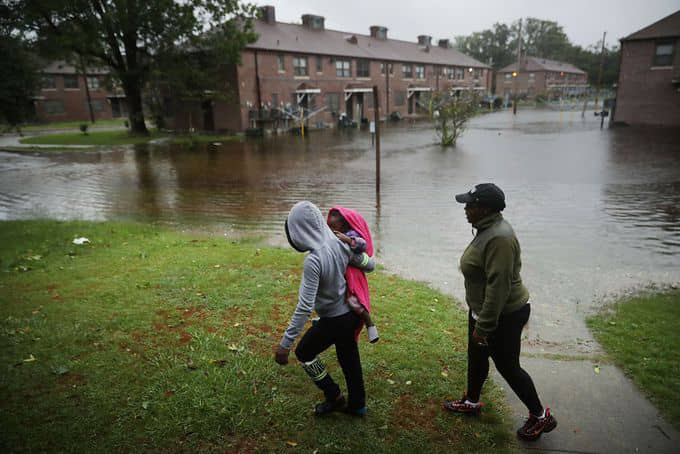There are nearly 450,000 low-income housing units at risk of flooding in the United States. That’s according to a 2017 report from NYU’s Furhman Center for Real Estate and Urban Policy.
But according to Laurie Schoeman of Enterprise Community Partners (ECP) — a non-profit organization that aims to “create opportunity for low- and moderate-income people through affordable housing in diverse, thriving communities” — that figure is “if anything … an underestimate of areas that are at risk,” she told the New York Times last year.
Because the federal government’s flood risk maps are based largely on historical data, Schoeman explained, there’s no guarantee that more recent climate-driven increases in local precipitation are accounted for — a reminder that all affordable housing communities should have disaster plans in place.
This is particularly vital, writes former HUD official Harriet Tregoning in her foreward to ECP’s Strategies for Multifamily Building Resilience, because “many of the most vulnerable Americans live in affordable multifamily housing that is not designed to sustain extreme climate shocks.”
And, unfortunately, flooding isn’t the only extreme weather threatening these communities.
Even in states historically plagued by brutal summer heatwaves, affordable housing owners are not required to install air conditioning, let alone implement alternative strategies for mitigating the impacts on residents.
And this vulnerability to extreme heat is only expected to grow as the COVID-19 pandemic continues through the summer months. Experts are already warning that we may be facing more heat-related deaths than in previous years as increasingly cash-strapped households choose to forgo expensive, energy-inefficient cooling methods or avoid air-conditioned public places all together out of fear of contracting the virus.
ENTERPRISE COMMUNITY PARTNERS HAS THE TOOLS TO HELP COMMUNITIES PREPARE
ECP’s Ready to Respond Tools for Resilience were developed to help affordable housing organizations make their buildings resilient, prepare their staff to handle emergencies and ensure their residents remain safe.
These tools will help organizations:
- Communicate and coordinate with residents and external stakeholders during a variety of emergencies
- Ensure housing infrastructure can sustain shocks from a variety of emergency events
- Maintain business continuity during an emergency event
#1 Multifamily structural resilience guide
Strategies for Multifamily Building Resilience is a collection of 19 practical strategies developed in consultation with more than 50 experts in the field of resilience as well as the Federal Emergency Management Agency (FEMA) and the National Flood Insurance Program (NFIP).
The guide will help multifamily housing owners make properties more resilient against the effects of extreme weather events through:
- Protection: Strategies to reduce a building’s vulnerability to extreme weather, including wet and dry floodproofing, resilient elevators and sump pumps
- Adaptation: Strategies that improve a facility’s ability to adapt to a changing climate, including envelope efficiency, surface stormwater management and distributed heating and cooling
- Backup: Strategies to provide critical needs when a facility loses power or other services, including emergency lighting and access to potable water
- Community: Strategies that encourage behavior which enhances resilience, including building community ties
#2 Disaster Staffing Toolkit
Housing organizations can use the Disaster Staffing Toolkit, which is based on the Incident Command System (ICS), to improve communication, coordination and information sharing in the event of a disaster, both predicted and sudden.
By using the toolkit to develop a disaster staffing plan, organizations will be able to:
- Assign an Emergency Preparedness Coordinator (EPC) to manage the plan’s implementation
- Minimize building damage and ensure quick return to service
- Support the safety, preparedness and recovery of residents
- Maintain key business operations throughout a disaster
ECP’s tabletop exercise for affordable housing organizations simulates a disaster scenario, and showcases a staffing chart, sample agenda and discussion questions — everything needed to conduct an effective training exercise with your multifamily housing emergency preparedness and response team.
Source: EFFICIENTGOV




